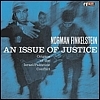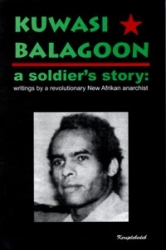The following from Gilbert Achcar:
What pushes Arabs to deny the existence of the Holocaust? How and why does Israel continue to instrumentalize the memory of the destruction of European Jewry? What was the attitude of Arab intellectuals during the Second World War? Why does Ahmadinejad incessantly brandish the denial weapon while Hamas and Hezbollah turn away from it? Mediapart published an exclusive extract from the book, "Les Arabes et la Shoah" [The Arabs and the Holocaust] (éditions Actes Sud/Sindbad, 2009), that came out Wednesday, October 14. [Metropolitan Books will be releasing an English version of the book in April 2010.]
The result of an unprecedented labor, the work of political scientist Gilbert Achcar -- professor at London University's School of Oriental and African Studies (SOAS) -- reviews over a century of history from the birth of Zionism to last winter's Israeli offensive against Gaza. Although he gives prominence to the political impasse constituted by the Israeli-Palestinian conflict, he indicates "new links" that today exist between Jews and Arabs. An Interview.
Pierre Puchot: Gilbert Achcar, your book's subtitle is: "The Israeli-Arab War of Narratives." What do you mean?
Gilbert Achcar: It's about the war that opposes two entirely symmetrical visions of the origins of the conflict. Specifically, I refer here to the notion of "narrative" as the recitation of history as developed by post-modernism. The Israeli narrative describes an Israel that emerges as a reaction to anti-Semitism, beside the "Biblical rights" invoked by religious Zionists. And its justification by European anti-Semitism is extended to Arabs, who are presented as accomplices to this paroxysm of anti-Semitism that was Nazism -- which would legitimate the birth of the State of Israel on lands conquered from the population of Arab descent. That's why the Israeli narrative insists to such a degree on Amin al-Husseini, this character, blown up out of all proportion, who became the ex-grand mufti of Jerusalem.
On the Arab side, the most rational narrative -- later we'll mention the denialist escalations that are on the rise at present -- may perhaps be summarized in these terms, "We had nothing to do with the Shoah. Anti-Semitism is not an established tradition for us, but a European phenomenon. Zionism is a colonial movement that really took off in Palestine under the British colonial mandate, even though there were earlier instances. In consequence, it's a colonial implantation in the Arab world, on the model of what was seen in South Africa and elsewhere." It's the war between these two narratives that I explore in this book.
Is there a dominant Arab reading of the Shoah? In what respects is it specific and how does it differ from those in Europe or the United States?
There's not a single Arab interpretation of the Shoah, just as there isn't a single European reading either, even though there's certainly more homogeneity in the perception of the Holocaust in Europe. However, even that is recent, since, as you know, the Shoah was not a very current theme in European news and education during the two decades that followed the end of the Second World War.
In the Arab world, the situation is far more diversified. That is chiefly the result of the existence of a great variety of political regimes in the Arab countries, with very different ideological legitimatizations. Similarly, very diverse -- and even broadly antithetical -- ideological currents traverse Arab public opinion.
In these last few years, there has been an escalation in the brutality of Israeli military operations -- which have gone from being wars that Israel could present as defensive to wars that could no longer be presented that way at all -- beginning with the invasion of Lebanon in 1982. That has been accompanied by an intensification of hatred in the Israeli-Arab conflict, notably because of the fate reserved for the Palestinians of the territories occupied since 1967.
In the face of growing criticism of Israel, including in the West, since 1982 especially, we have seen that state systematically resort to instrumentalization of the memory of the Shoah, beginning no later than the Eichmann trial in 1960. And that instrumentalization arouses, on the "opposing side," a knee-jerk reaction that sometimes goes so far as to deny the Holocaust. The best indicator of this reactive quality is the fact that the Arab population which has received the widest education on the memory of the Shoah, the population of Arab citizens of Israel, has been prone to an absolutely striking explosion of denial these last few years.
To my mind, that very clearly illustrates the fact that denial in these cases corresponds more to a "gut reaction" out of political rancor, than to a true denial of the Shoah as is seen in Europe or the United States, where the deniers spend their time devising historical theories that don't stand up to refute the existence of the gas chambers, etc.
Another indication of this difference is that within the Arab world where denial is riding high, there's not a single author who has produced anything original on that theme. All the Arab deniers do is pick up theories produced in the West.
The political instrumentalization of denial as formulated by Ahmadinejad today was not used before in the Arab world, in the time of Nasser, for example. What does this development tell us?
The Islamic fundamentalism that has developed over the most recent decades, from the perspective of the Israeli-Arab conflict, carries an essentialist vision, even though it is not anti-Semitic in the strict racial sense of the term. It's a vision that picks up the anti-Judaism that may be found in the Abrahamic religions that followed Judaism: Christianity and Islam. Those elements present in Islam are going to be pointed out to facilitate a convergence between this ideologically extreme current and Western denial.
What elements of Islam allow the realization of this anti-Judaism?
There are criticisms of Judaism within Islam and echoes of the conflict that arose between the Prophet of Islam and the Jewish tribes on the Arab peninsula. But it's a contradictory background: we find anti-Christian and anti-Jewish statements in Islamic scripture. But at the same time, Christians and Jews are considered "people of the book" and may in consequence enjoy privileged treatment compared to other populations in the countries Islam conquered, populations which were forced to convert. The people of the book were not forced to convert and their religions were considered legitimate. Consequently, there is tension between these two contradictory dispositions.
I show in my book how the man who may be considered the main founder of modern Islamic fundamentalism, Rachid Rida, switched from a pro-Jewish attitude due to anti-Christianity -- especially during the Dreyfus Affair, when he denounced anti-Judaism in Europe -- to an attitude that, towards the end of the 1920's, began to repeat an anti-Semitic discourse of Western inspiration, including the big Nazi anti-Semitic narrative attributing all kinds of things to the Jews in continuity with the fake Russian "Protocols of the Elders of Zion," including responsibility for the First World War. Then we see a graft occur between certain Western anti-Semitic discourse and Islamic fundamentalism which veers in that direction on this question because of what was happening in Palestine. Before the conflict turned ugly in Palestine, this same Rachid Rida tried to dialogue with representatives of the Zionist movement to convince them to form an alliance between Jews and Muslims to confront the Christian West as a colonial power. From that anti-colonialism that determines anti-Westernism, they were to move on to anti-Zionism, which, in the case of a fundamentalist religious mentality, combined very easily with anti-Semitism.
With that said, the signs of anti-Judaism that one finds in Islam, one finds a hundredfold in Christianity, and in Catholicism in particular, with the idea of the Jews as deicides, the Jews responsible for the death of Jesus, the son of God. This anti-Jewish charge contained in Christianity has, moreover, resulted in a persecution of the Jews in the history of the West incomparably worse than was the case in Islamic countries. We have seen, for example, how Jews of the Iberian Peninsula, fleeing the Christian Reconquista and the Inquisition, found refuge in the Muslim world, in North Africa, Turkey and elsewhere.
How have Hezbollah and Hamas used this rising tendency towards denial for political ends?
Rachid Rida's discourse, integral to their ideologies, was present from the outset in Hamas and Hezbollah. Much more, by the way, in Hamas, which is an emanation of the Muslim Brotherhood in Palestine. The founder of the Brotherhood, Hassan El-Banna, was largely inspired by Rachid Rida.
In the case of Hezbollah, the discourse is presented through the slant of what was to come from political Iran: in Shiite fundamentalism originally, there is no source for an anti-Judaic dimension comparable to the one developed by Rida. It was to be elaborated along with the Iranian regime's opposition to the West, to the United States and to Israel.
That said, what distinguishes Hamas as well as Hezbollah is that they're mass movements, and, as such, they have a pragmatic dimension. As much as it suits Ahmadinejad to perform denialist one-upsmanship for reasons of state policy, these movements have to a large extent reduced the anti-Semitic discourse they previously expressed and which proved to be counter-productive.
What I understand from your book is that Holocaust denial has become a political instrument per se in the Middle East, whether one chooses to use it or not. How was this instrument integral to the political foundation of the Palestinian movement, especially with respect to the PLO?
The PLO, ever since the armed Palestinian organizations got the upper hand within it after 1967, very quickly came to understand that anti-Semitic discourse is bad in itself and altogether contrary to the interests of the struggle of the Palestinian people. Hence the insistence on the distinction to be made between anti-Semitism and anti-Zionism, which was the issue in a political battle within the Palestinian movement.
Conversely, what are the mechanisms of what you call the "positive" instrumentalization of the Shoah, as it emanates from Israel?
What may be the legitimatizations for the State of Israel? I'm not talking about questioning its existence, but about examining the legitimatizations that it gives itself. One has to confess that, apart from religious Zionists, the Biblical legitimatization convinces very few people! As for the justification that we find in secular Zionism as expressed most notably by Theodore Herzl, it's a justification that does not take into account what is actually there where the "State of the Jews" is going to be created. The only justification he gives for that state is anti-Semitism in the West. He doesn't concern himself with what's already over there. Moreover, we know that at the outset the Zionist movement occasionally had very intense debates about the possible location for the Zionist state. Therefore, for the Zionist movement, it was a matter of inserting itself within a colonial undertaking and we find references to colonialism in Herzl's book, including the idea of embodying a rampart of civilization against barbarism.
Colonial ideology having expired globally, it was necessary to find an alternative legitimatization: that's when the instrumentalization of the Shoah began to intensify, especially from the beginning of the 1960's with the Eichmann trial. Excellent work has already been done on this subject, particularly that of Tom Segev. It's an absolutely remarkable work on the manner in which, within Israel itself, the question of the Shoah was to suddenly emerge and change character. The relationship to the Holocaust was to change from a relationship of contempt for the survivors to claiming that memory as a legitimatization for the State. Moreover, as a narrative, this legitimatization has been highly effective in the West on several levels, including in the relations maintained between Israel and the Federal Republic of Germany at a time when the German administration was stuffed with former Nazis. People frequently obscure the absolutely significant role Germany played in strengthening the State of Israel, notably by the reparations Bonn dispensed, not to the victims of Nazism, to the survivors of the genocide, but to the State of Israel presented as the survivors' state. Consequently, this legitimatization of the State of Israel was to appear over time as a very high-value political instrument for that State, an instrument that today is overexploited.
The memory of the Shoah is invoked to counter every criticism. At times, this has reached the level of the grotesque as when Prime Minister Begin made his famous answer to Ronald Reagan during the siege of Beirut: Begin compared Arafat to Hitler then, at the very moment when it was the Israeli Army besieging Beirut and while many Israelis and other observers were instead finding parallels with the Warsaw Ghetto.
Does the parallel between the Nakba and the Shoah exist in the Middle East? In what respect does it reveal possible political developments?
At that level, there are two different aspects: the one that we've talked about, the war over the instrumentalization of the Holocaust, and there is what you could call the local version of competition between victims: "My tragedy is more important than yours." On the Palestinian side, one may often read statements that assert that the fate of the Palestinian people has been worse than that of the Jews under Nazism. These are obviously altogether outrageous and absurd exaggerations, but we can easily understand what drives them. Moreover, we find this victims' competition with respect to the Shoah in the case of other historical tragedies such as the Armenian genocide, for example.
At the same time, it is good to listen to former Knesset Speaker Avraham Burg's remarks. He says out loud: "We are guilty of denying the genocides and the tragedies of others." Confronted with a situation, where, in Israel, they deny the Nakba -- and where it required the appearance of those who are called the "New Historians" and of post-Zionism for the official discourse of Nakba denial to be strongly questioned -- there is not only a development of Holocaust denial on the Arab side, but also an escalation in their claims about the scope and the drama of their own tragedy. That can often lead to contradictory statements: on the one hand, Holocaust denial, a minimization of the crimes of Nazism, and, on the other hand, a discourse accusing Israel of reproducing the crimes of Nazism ... It's perfectly clear that it's not logic that holds sway. It's an ideological war that proceeds more through feelings and passions than through rational discourse.
In your conclusion, you present a rather optimistic analysis: "The progress made between Arabs and Israelis is significant when one considers the virtual impossibility of communication between them in the first decades following the Nakba."
This progress has, in part, been a product of the PLO, which opened the way to a more rational attitude vis-à-vis the Shoah, the State of Israel and Israelis on the Arab side.
Connections between Arabs and Jews exist today and in the end must favor recognition of the Holocaust and of the Nakba. Israelis' recognition of the latter is more difficult because it implies recognition of their own responsibility, with the direct implications you can imagine, and which would lead to an attitude radically opposed to that of Israeli governments up to now. Yet that recognition of the Nakba by Israel is today an indispensable step towards achieving a true settlement of this conflict that has gone on for too long.
[Translation: by Truthout French Language Editor Leslie Thatcher, with the permission of Medipart.]
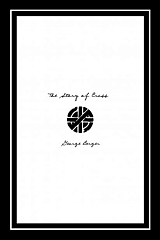 The Story of Crass
The Story of Crass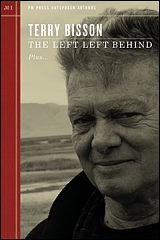 The Left Left Behind
The Left Left Behind The Lucky Strike
The Lucky Strike Girls Are Not Chicks Coloring Book
Girls Are Not Chicks Coloring Book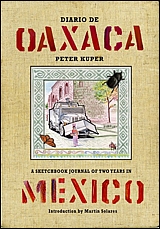 Diario De Oaxaca: A Sketchbook Journal of Two Years in Mexico
Diario De Oaxaca: A Sketchbook Journal of Two Years in Mexico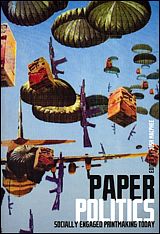 Paper Politics: Socially Engaged Printmaking Today
Paper Politics: Socially Engaged Printmaking Today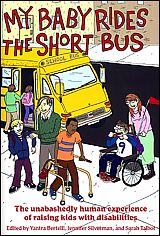 My Baby Rides the Short Bus: The Unabashedly Human Experience of Raising Kids with Disabilities
My Baby Rides the Short Bus: The Unabashedly Human Experience of Raising Kids with Disabilities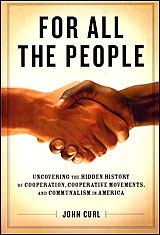 For All the People: Uncovering the Hidden History of Cooperation, Cooperative Movements, and Communalism in America
For All the People: Uncovering the Hidden History of Cooperation, Cooperative Movements, and Communalism in America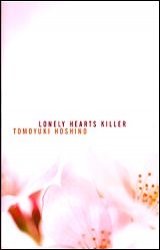 Lonely Hearts Killer
Lonely Hearts Killer

